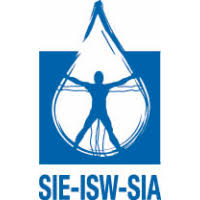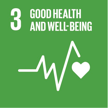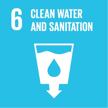About this project
Access to clean water has never been easy especially during the dry season in the locality of Kang Barombi. The available water points which served as their main water distribution source are nonfunctional causing a constraint in fluid security for the local population. The rural community of Barombi Kang with an estimated population of 6, 000 inhabitants is currently facing a high level of water shortage especially during the dry season. Consequently, this problem has forced majority of the denizens to rely on unsafe water source which is not usually treated before consumption, in effect detrimental to the health of the entire household and the community at large.
The proposed project seeks to ensure access to safe water resources, construct a bore well at the center of this community and empower the rural denizens on effective usage of water points and sustainability approaches.
The project will be implemented during a period of 4 months
In order to ensure the sustainability of the water well the community will have ownership and management approach, making the end‐users directly responsible for the operation and maintenance of the installed facilities.
Goals and Objectives
The goal of this project is to ensure access to safe water resources, construct a bore well at the center of this community and empower the rural denizens on effective usage of water points and sustainability approaches.
Objectives
· Increase the availability of potable drinking water to the local population.
· Empower local community on sustainability to ensure effective usage of the water points through training.
· Create employment opportunities for women in the community
· Reduce the risk of an epidemic diseases caused by poor hygiene and sanitation.
· Reduce long distances people have to walk to get portable drinking water thereby saving time for other activities.
· Impart a sense of ownership of the public water projects, which is quite essential in terms of project sustainability.
· Increase experience by involving the community in the Design, Implementation, monitoring, and evaluation of the project.
The beneficiaries for this project are the local population of Kang Barombi, Kumba
The rural community of Barombi Kang is currently facing a high level of water shortage especially during the dry season which is due to inconsistency of water supply by CAMWATER, with a majority of them not having WASH hardware in their homes as a result of lack of finance. This problem has forced majority of the denizens to rely on unsafe water source which is not usually treated before consumption, in effect detrimental to the health of the entire household and the community at large.
They will benefit from the bore well which will be constructed at the center of the community. The local population will be trained in the maintenance of the drinking bore well and sustainability approaches of other water points to be constructed.
In order to ensure the sustainability of the water well the community will have ownership and management approach, making the end‐users directly responsible for the operation and maintenance of the installed facilities. Beneficiaries will pay at least for the maintenance costs of $2 USD per family monthly. This money paid in the future will be used to construct another water point to increase water accessibility. The water management committee will appoint two treasurers to collect the money from the beneficiaries (two women). Sustaining the water supply will not be dependent on the volunteers. Everyone will be involved.
There is a potential for replication. This is is due to insufficiency of water points (mostly unsafe water sources) in this area.
Expected result
Outputs
- Bore well constructed
- Two women empowered and employed
- Local population empowered on sustainability to ensure effective usage of the water points
- Local population gained skills on ownership of water projects
Outcomes
- Increased availability of potable drinking water
- Reduced risk of epidemic diseases caused by poor hygiene and sanitation
Impact
- Reduced water stress and long distances people encounter to get portable water
- Creation of job opportunities for two women
- Community empowered on sustainability and proper usage of water points
- Reduced discrimination in access to portable water and sanitation
Sustainable Development Goals
Partners


About me / organisation
Tabong Philip Nchua Junior
Tabong Philip Nchua Junior is 25 years old. He has three years experience in the nonprofit sector, and he has gained experience within the social work field acting as coordinator in their project which was to ensure access to safe water for the distressed population of Kumba using GIS Cloud's mapping technology. He was responsible for assigning licenses and assisting mobile data collectors in the field to collect data. In his previous roles, he exercised skills in leadership, critical thinking and administrative support and consistently contributed to team efforts and organizational improvements. https://www.giscloud.com/blog/mapping-water-taps-to-ensure-wash-infrastructure-and-safe-drinking-water-for-the-entire-population-of-kumba-cameroon/.
Website

